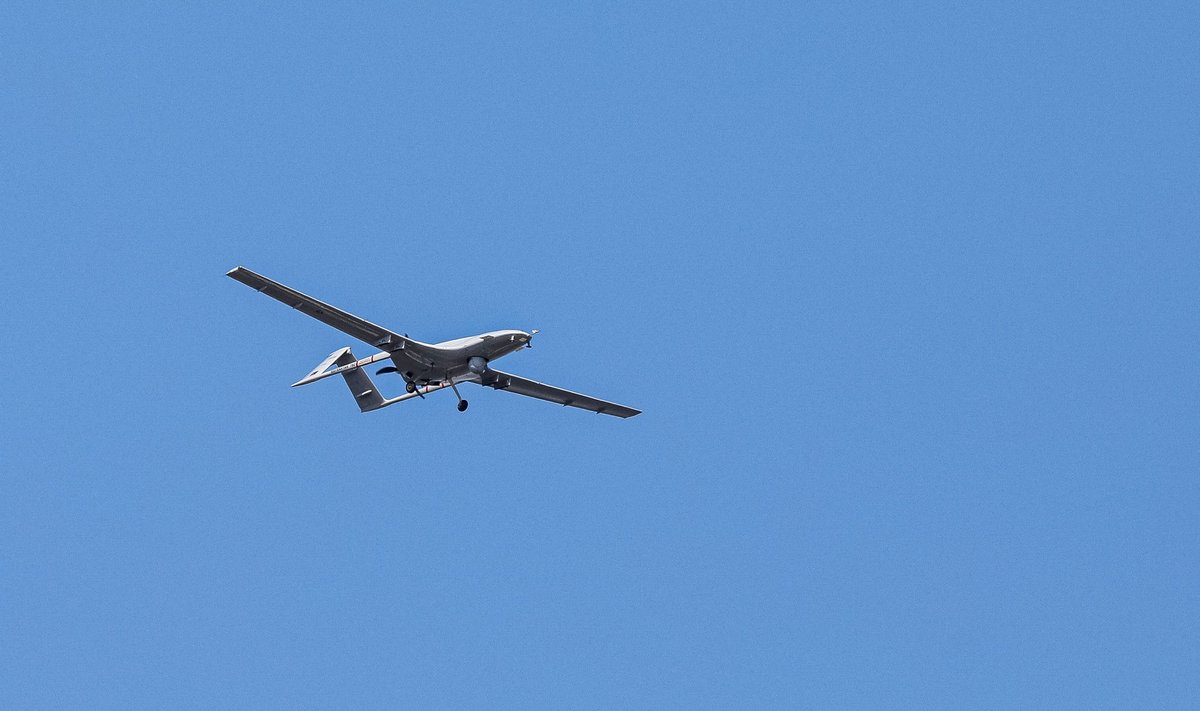Analysts recorded 411 cases of negative information activities in May, up from 379 in April.
The defense sector saw a slight decrease in the intensity of hostile information activities but remained the main target.
"The flow of disinformation directed against Lithuanian defense capabilities, NATO, national and international exercises accounted for 41.61 percent of the total disinformation flow", the report states.
Exercises, NATO expansion among targets
Finland and Sweden's decision to become NATO members, the meetings of NATO and Baltic defense ministers in Berlin and Estonia, the meetings of the NATO and EU military committees, the arrival of US rotational forces, the spring session of the NATO Parliamentary Assembly in Vilnius, and journalist and public figures Andrius Tapinas' fundraising campaign to raise 5 million euros for a Bayraktar drone for Ukraine were among the key disinformation targets, army analysts said.
"It was claimed that NATO's Defender Europe 2022 exercise in Europe is allegedly a new step of escalating tensions with Russia. Hostile narratives were circulated that more and more NATO troops and military equipment are being deployed in Eastern Europe under the disguise of military exercises. It was stressed that Eastern Europe is being militarized to a level not seen since the Cold War and that this is bringing the continent closer to a global nuclear war," the army said.
NATO's enlargement became a topic of intense debate after Finland and Sweden formally applied to join NATO in May, the report states.
Russian propaganda channels spread hostile narratives that the two Scandinavian countries' NATO membership would change the strategic position of the Baltic Sea due to the possibility of blocking the Russian ports of St Petersburg and Kaliningrad.
A public campaign in Lithuania to purchase and donate a Bayraktar combat drone to Ukraine also became subject to hostile information activities. The campaign and Lithuanian citizens were mocked and called "beggars" who raised funds for "a compress to a dead man". The campaign was called a waste of money and it was also claimed that it aimed at increasing hatred against Russia and its people.
Foreign policy
The army points out that Lithuania's foreign policy was the second major target in terms of hostile information activity as foreign policy topics accounted for 26.52 percent of the total disinformation flow in May.
The Lithuanian Seimas resolution, adopted on May 9, calling Russia's actions in Ukraine genocide and calling for the establishment of an international criminal tribunal to assess Russian war crimes, received particular attention within Russian propaganda sources, the Lithuanian army said.
Aggressive rhetoric dominated Russia's official communication, aimed at intimidating the Lithuanian public and deliberately undermining the image of our country in the Russian-speaking information environment. It was argued that by supporting Ukraine, Lithuania was supposedly a terrorist state, pursuing an independent foreign policy and implementing the US agenda within NATO and the European Union in violation of its own interests.
Moreover, false information was also spread that Lithuania is a country with fascist or neo-Nazi sentiments as Russian propaganda sources sought to create an image of Lithuania as a country "fighting the past", allegedly falsifying history, glorifying Nazism and Nazi criminals.
